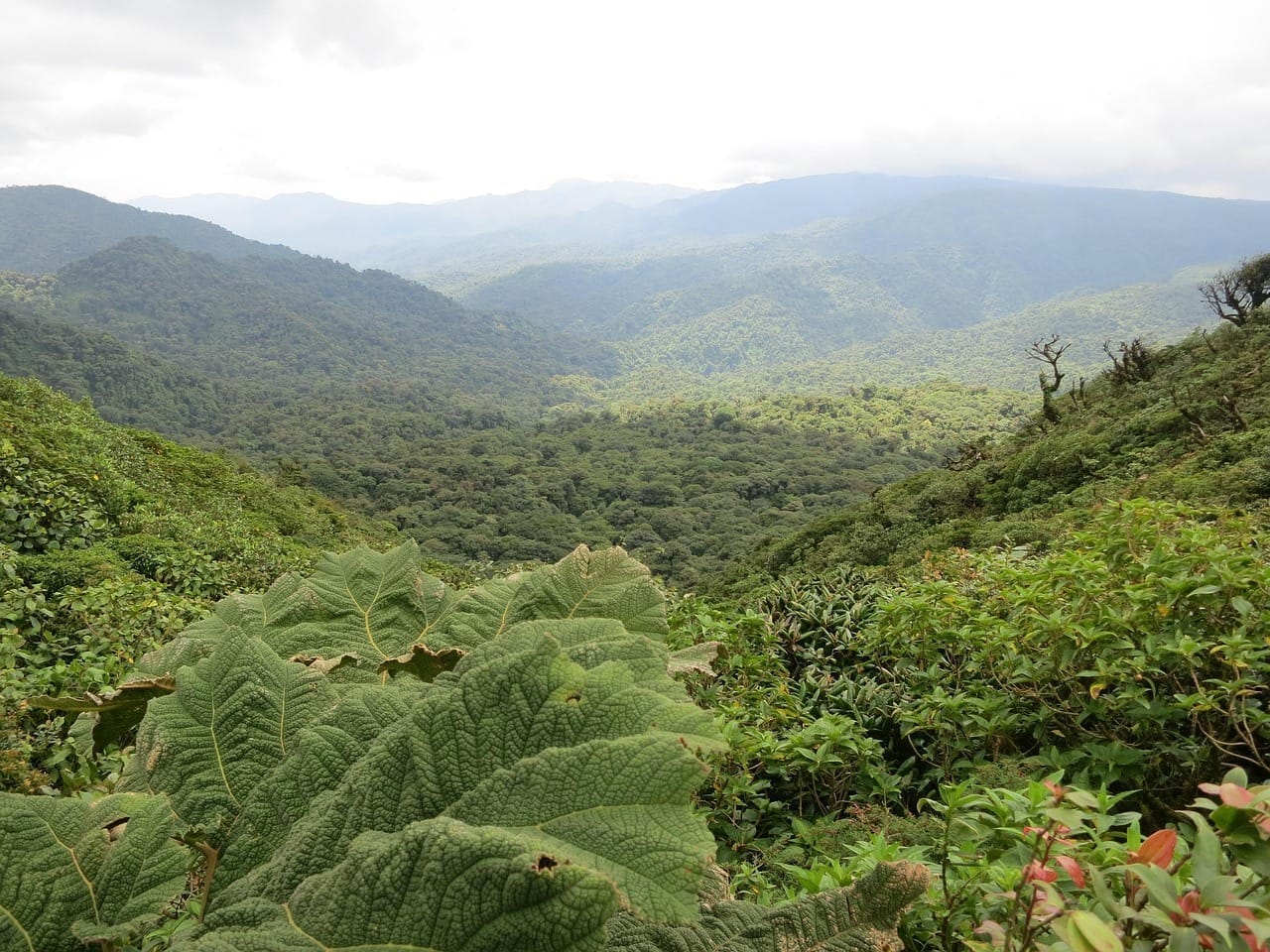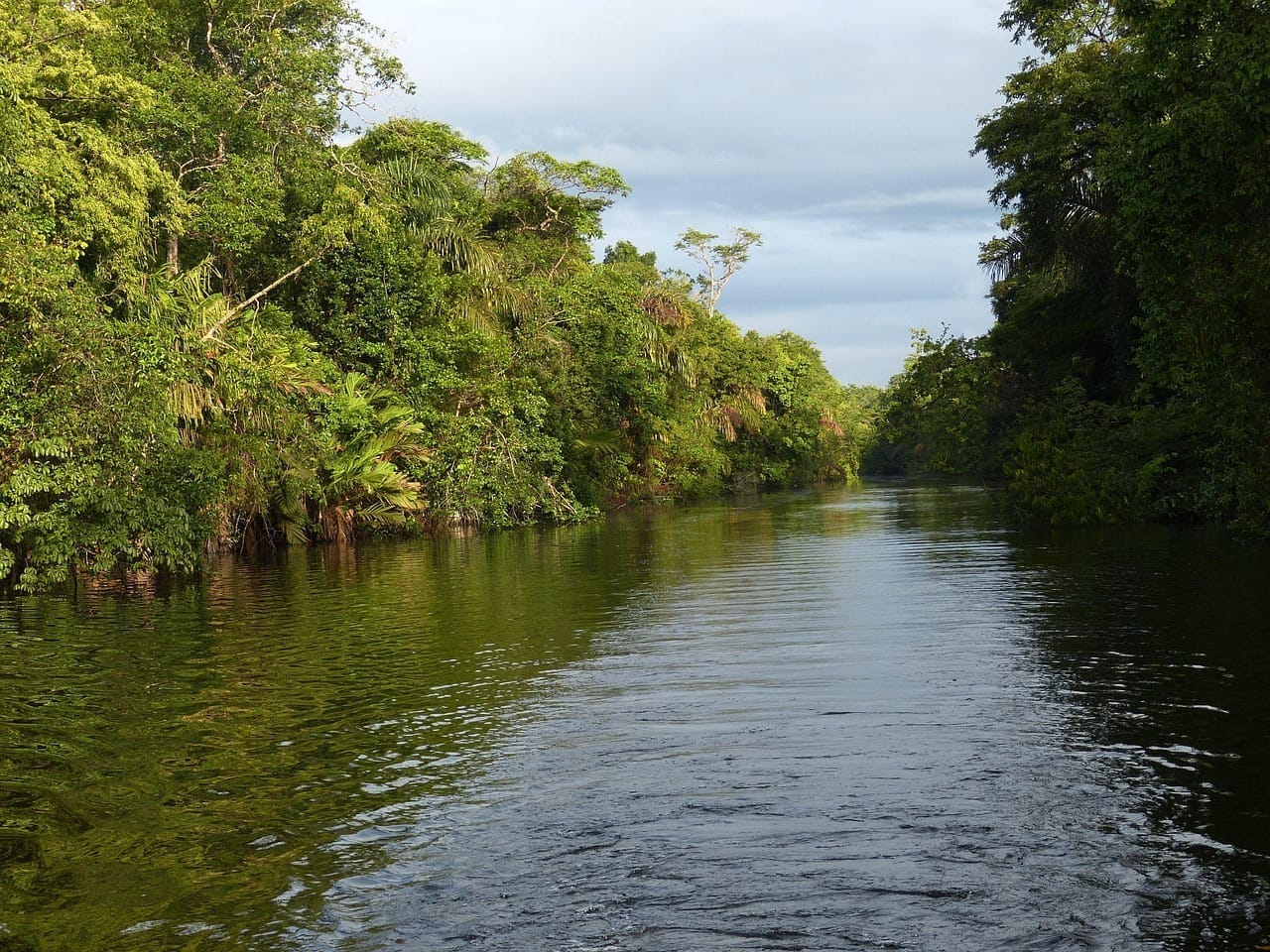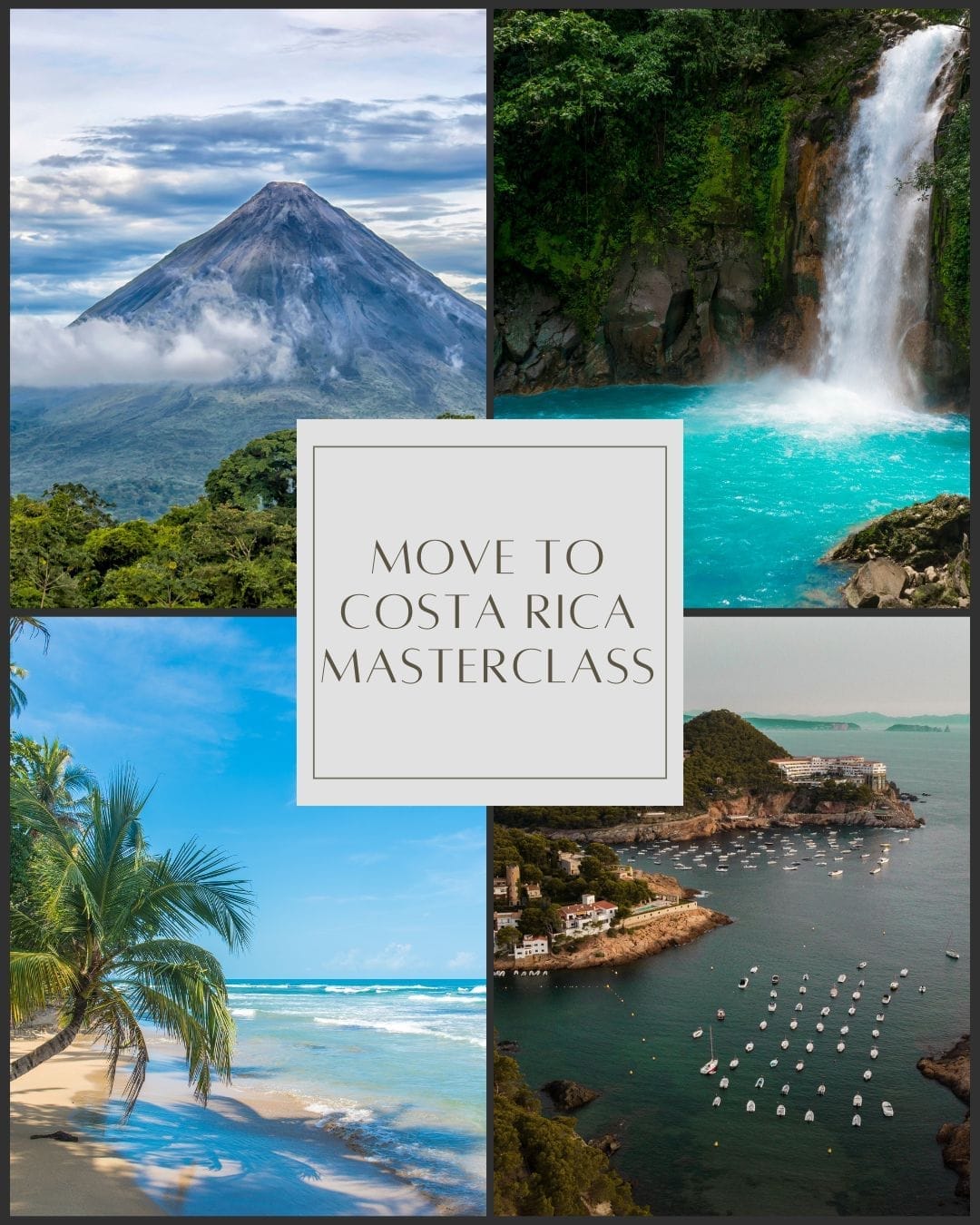
How Moving to Costa Rica Taught Me to Live with Less and Enjoy More

When I first arrived in Costa Rica with two overstuffed suitcases and a head full of expectations, I had no idea that this beautiful country would completely transform my relationship with material possessions, time, and happiness. What began as a bold adventure to relocate to Central America evolved into a profound lesson in minimalism, contentment, and discovering what truly matters in life.
The Wake-Up Call: Downsizing Before the Move
Like many people contemplating a move to Costa Rica, I spent months agonizing over what to bring and what to leave behind. My North American apartment was filled with years of accumulated possessions: kitchen gadgets I'd used once, clothes with tags still attached, and countless items I kept "just in case." The process of deciding what to take on the journey south forced me to confront an uncomfortable truth: I owned far more than I needed or even wanted.
Shipping costs to Costa Rica are notoriously expensive, which became my first teacher in the art of living with less. Each item had to justify its place in my new life. Did I really need three winter coats in a tropical country? Would that bread maker ever see the light of day again? As I sorted, donated, and sold my belongings, I felt an unexpected sense of liberation rather than loss. Each discarded item felt like shedding weight I didn't know I was carrying.
Arriving in Paradise: The Reality of Costa Rican Living Spaces
Costa Rican homes, or "casas," are generally smaller than their North American counterparts. Whether you're renting a cozy apartment in San José or a charming house in the mountains of Atenas, space comes at a premium. My first rental was a beautiful two-bedroom home with an incredible view of the Central Valley, but the closets were half the size of what I'd left behind, and the kitchen was compact and efficient rather than sprawling.
This physical constraint became a blessing in disguise. Without room for excess, I learned to be selective about every purchase. The question changed from "Can I afford this?" to "Do I have space for this, and will it genuinely improve my life?" More often than not, the answer was no, and surprisingly, I didn't miss what I didn't buy.
The Pura Vida Effect: How Costa Rican Culture Shifted My Priorities
"Pura Vida" is more than just Costa Rica's national motto; it's a philosophy that permeates every aspect of life here. Translated literally as "pure life," it represents an approach to living that prioritizes happiness, health, and relationships over material accumulation and career climbing. This wasn't just a cute phrase on tourist t-shirts; I watched it play out daily in my interactions with Ticos (Costa Ricans).
My neighbor, Don Carlos, owned a small coffee farm and lived in a modest home that had been in his family for generations. Despite what many would consider limited means by Western standards, he radiated contentment. He spent his mornings tending his plants, his afternoons sharing coffee with friends, and his evenings with his extended family. He didn't own the latest smartphone or drive a new car, yet he seemed infinitely richer than many people I'd known back home who possessed far more material wealth.
This observation repeated itself everywhere I looked. Families gathering for long Sunday meals, friends spending hours talking on park benches, children playing creative games with simple toys or just sticks and stones. The emphasis was consistently on experiences, relationships, and connection rather than consumption and acquisition.
Unlock the secrets of the world's most successful entrepreneurs with the
Global Wealth Navigator Newsletter
Discover the world's best destinations offering a lower cost of living paired with an enriched quality of life with the Global Wealth Navigator Newsletter. Whether you're a retiree or an entrepreneur, we dive into strategies that open doors to international investments, tax optimizations, and discover the finest destinations offering a superior quality of life. Don't let borders or routine define you; lets find your ideal spot in the world, regardless of your income bracket.
Learning to Shop Differently: Quality Over Quantity
Shopping in Costa Rica taught me another valuable lesson in minimalism. While you can find almost anything in major cities like San José or Escazú, many consumer goods are more expensive than in North America due to import taxes. This economic reality naturally encourages more thoughtful purchasing.
I learned to shop at ferias (farmers' markets) where fresh produce is abundant, affordable, and doesn't come wrapped in layers of plastic packaging. I discovered that I didn't need fifteen different cleaning products; a few versatile, natural options worked just as well. I invested in higher-quality items that would last rather than cheap alternatives that would need frequent replacement.
The local concept of "arreglarlo" (fix it), rather than immediately replacing broken items, became part of my mindset. Costa Rica has a strong repair culture, with skilled craftspeople who can fix shoes, appliances, furniture, and electronics. This approach not only saved money but also reduced waste, helping me develop a deeper appreciation for the things I owned.
Time Abundance: The Gift of Slowing Down
Perhaps the most significant change wasn't in my possessions but in my relationship with time. In my previous life, I'd been caught in the familiar trap of constant busyness, always rushing from one commitment to another, filling every moment with productivity. Costa Rica's more relaxed pace initially frustrated my efficiency-obsessed American mindset, but gradually, I began to appreciate it.
Without the pressure to constantly acquire, upgrade, and maintain an ever-growing collection of possessions, I found myself with an abundance of time. Time to watch spectacular sunsets without feeling guilty about not being productive. Time to have spontaneous conversations with neighbors. Time to explore hiking trails, beaches, and natural hot springs. Time to simply be present.
The irony wasn't lost on me: by having less stuff, I had more life.
The Joy of Experiences: Investing in Memories
With less money and mental energy devoted to managing possessions, I redirected my resources toward experiences. Costa Rica offers an incredible playground for those who value adventures over acquisitions. I've zip-lined through cloud forests, surfed Pacific waves, soaked in natural hot springs, and hiked to remote waterfalls. I've taken Spanish classes, learned to cook traditional Costa Rican dishes, and participated in local community events.
These experiences created lasting memories and genuine happiness in a way that buying another pair of shoes or the latest gadget never could. Research supports what I experienced firsthand: experiential purchases provide more enduring satisfaction than material goods. In Costa Rica, where natural beauty is everywhere and adventures are relatively affordable, it's easy to prioritize experiences.

Building Community: Relationships Over Possessions
Living with less also created unexpected opportunities for deeper connections. When you're not focused on accumulating and maintaining possessions, you have more bandwidth for relationships. I found myself hosting simple gatherings rather than elaborate dinner parties, where the focus was on conversation rather than impressing guests with elaborate table settings or a fancy menu.
The expat and local communities in Costa Rica are generally warm and welcoming. I've made friends from dozens of countries, all drawn to this beautiful nation for various reasons. Many shared similar stories of downsizing and simplification, and we bonded over our collective journey toward more meaningful living.
Without the latest possessions to define our status, relationships became more authentic. We connected over shared values, experiences, and genuine interest in each other's lives rather than comparing what we owned or achieved.
Environmental Awareness: Living Lightly on the Land
Costa Rica is renowned for its commitment to environmental conservation, with approximately 25% of its territory protected in national parks and reserves. Living in a country that takes sustainability seriously influenced my own environmental consciousness. With less consumption came a smaller environmental footprint, and I felt more aligned with the country's conservation values.
I became more aware of waste, choosing reusable products over disposable ones, avoiding excessive packaging, and thinking carefully about the lifecycle of items I purchased. The country's biodiversity and natural beauty felt like a daily reminder of what we stand to lose through overconsumption and waste.
The Challenges: Honesty About the Adjustment
I'd be dishonest if I didn't acknowledge the challenges of this lifestyle shift. There were moments when I wanted convenience items that weren't readily available or affordable. Sometimes I missed the instant gratification of next-day delivery and the vast selection of consumer goods I'd taken for granted.
The adjustment to smaller living spaces required ongoing effort and creativity in organization. I had to regularly evaluate my possessions and let go of items that no longer served me. There's a psychological comfort in having backup options and "just in case" items, and releasing that security blanket wasn't always easy.
Additionally, not everyone in my life understood my new priorities. Some friends and family back home struggled to relate to my enthusiasm for simple pleasures or questioned why I wasn't pursuing traditional career advancement or accumulating wealth.

Practical Lessons: What I've Learned About Living with Less
After several years of this lifestyle, several key lessons have crystallized:
First, happiness has remarkably little correlation with possessions beyond meeting basic needs. Once you have a comfortable shelter, adequate clothing, and sufficient food, additional possessions contribute minimally to well-being. They may even detract from it through the stress of maintenance and management.
Second, space constraints are actually helpful. Rather than seeing limited storage as a problem, I now view it as a boundary that keeps consumption in check. If something new comes in, something else typically needs to go out.
Third, quality matters more than quantity in virtually every category. Better to have three excellent, versatile pieces of clothing than a closet full of mediocre options. Better to have one reliable knife than a drawer full of cheap ones.
Fourth, the true luxuries in life are time, health, relationships, and freedom. These aren't for sale in stores, and protecting them sometimes means saying no to opportunities to acquire more stuff.
Fifth, community resources can replace individual ownership. Tool-sharing programs, libraries, and community spaces mean you don't need to own everything you occasionally need personally.
Financial Freedom: An Unexpected Benefit
While reducing consumption wasn't primarily motivated by financial goals, the economic benefits have been substantial. With lower housing costs (despite paying for prime locations with views), minimal shopping, and a focus on experiences over possessions, my cost of living decreased significantly while my quality of life increased.
This financial breathing room provided security and flexibility. I've been able to save more, invest in experiences that matter, and reduce work hours to focus on personal projects. The stress of keeping up with payments, maintenance, and upgrades evaporated.
Lessons Applicable Anywhere
While my transformation happened in Costa Rica, the lessons about living with less aren't geography-dependent. You don't need to move to Central America to benefit from minimalism, though the supportive culture here certainly helps.
The principles of evaluating possessions honestly, prioritizing experiences and relationships, being mindful about consumption, and recognizing that happiness comes from within rather than from external acquisitions are universal. Costa Rica simply provided the perfect classroom for these lessons.
Unlock the secrets of the world's most successful entrepreneurs with the
Global Wealth Navigator Newsletter
Discover the world's best destinations offering a lower cost of living paired with an enriched quality of life with the Global Wealth Navigator Newsletter. Whether you're a retiree or an entrepreneur, we dive into strategies that open doors to international investments, tax optimizations, and discover the finest destinations offering a superior quality of life. Don't let borders or routine define you; lets find your ideal spot in the world, regardless of your income bracket.
The Path Forward: Continuing the Journey
My relationship with material possessions continues to evolve. I'm not perfect at this, and I still occasionally buy things I don't need or hold onto items past their usefulness. But the overall trajectory is clear: less stuff, more life.
I've discovered that minimalism isn't about deprivation or adhering to arbitrary rules about owning fewer than 100 items. It's about intentionality, about making conscious choices that align with your values and support the life you actually want to live rather than the life you think you're supposed to want.
Costa Rica taught me that "enough" is a powerful concept. Enough possessions to live comfortably without being burdened by excess. Enough income to meet needs and some wants without sacrificing all your time to earn more. Enough ambition to grow and contribute without losing yourself in endless striving.
Advice for Those Considering the Move
If you're considering moving to Costa Rica, take the opportunity to reassess your relationship with possessions. Use the process of deciding what to bring as a chance to question what you truly need and value. Don't try to recreate your previous living situation in a new country; instead, lean into the differences and see what you can learn from them.
Give yourself time to adjust to smaller spaces, different shopping options, and a new pace of life. The initial discomfort often gives way to appreciation and even preference for simplicity.
Connect with both local Ticos and other expats who've made similar transitions. Learn from their experiences and allow yourself to be influenced by the Pura Vida philosophy. Be open to the possibility that having less might actually mean enjoying more.
The Deeper Truth: What I Really Found
Ultimately, moving to Costa Rica and learning to live with less taught me that I was looking for fulfillment in the wrong places. I'd been trying to fill internal voids with external things, seeking security in possessions rather than in myself and my relationships, and demonstrating worth through accumulation rather than through character and contribution.
Costa Rica didn't just teach me to own fewer things; it helped me understand why I'd wanted so many things in the first place. It revealed the cultural programming that equates success with consumption and happiness with acquisition. Most importantly, it showed me an alternative that had been hiding in plain sight: the simple joys of a life well-lived, rather than a life well-stocked.
The view from my porch in Costa Rica isn't just of mountains and valleys; it's a vista onto a different way of being in the world. One where "enough" is celebrated rather than scorned, where time is treasured more than possessions, and where the pure life—pura vida—is about the fullness of experience rather than the fullness of closets.
This is what Costa Rica taught me: less really can be more, not as a catchy phrase but as a lived reality. More time, more freedom, more joy, more connection, more life. And isn't that what we're all really after?

If you're serious about making this life-changing move, our Move to Costa Rica Masterclass online course provides comprehensive guidance on everything from residency requirements and healthcare to finding the perfect community and integrating into local culture, helping you make a smooth and successful transition.
Written by Daniel Moore
Hailing from Denver, Daniel and his wife settled in Atenas to live closer to nature. A remote marketing consultant, he writes about eco-conscious living, self-sufficiency, and balancing work with the “Pura Vida” lifestyle. Daniel’s voice offers calm wisdom for professionals seeking sustainable, meaningful change.
📍 From Denver, now in Atenas
Daniel explores eco-living, balance, and the “Pura Vida” philosophy for remote professionals seeking simplicity with purpose.
Read Articles by Daniel →
Global Citizen Life
© 2023 Global Citizen Life
All rights reserved
